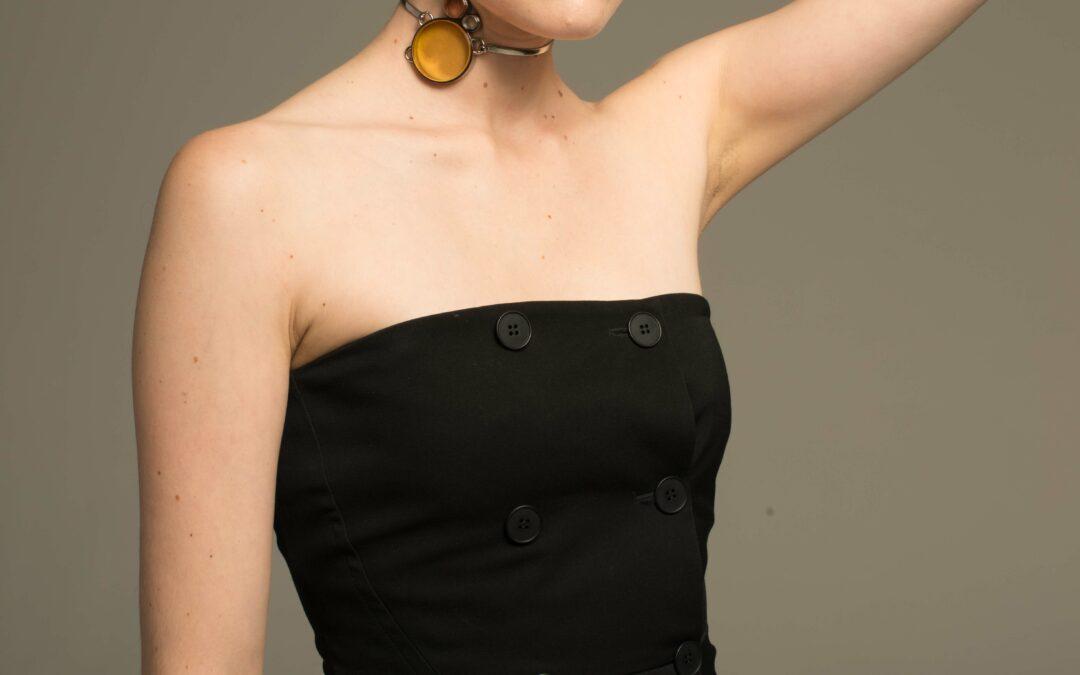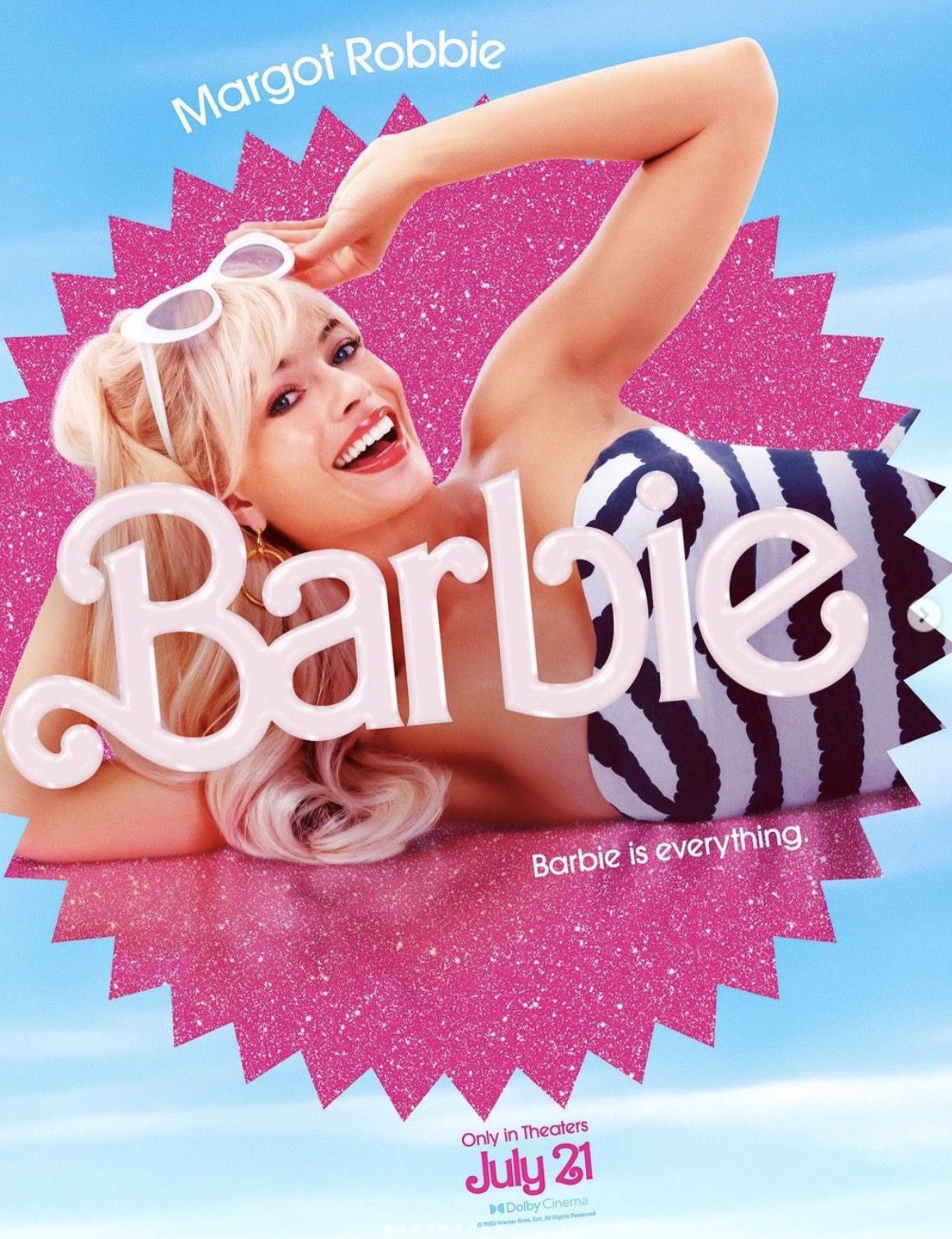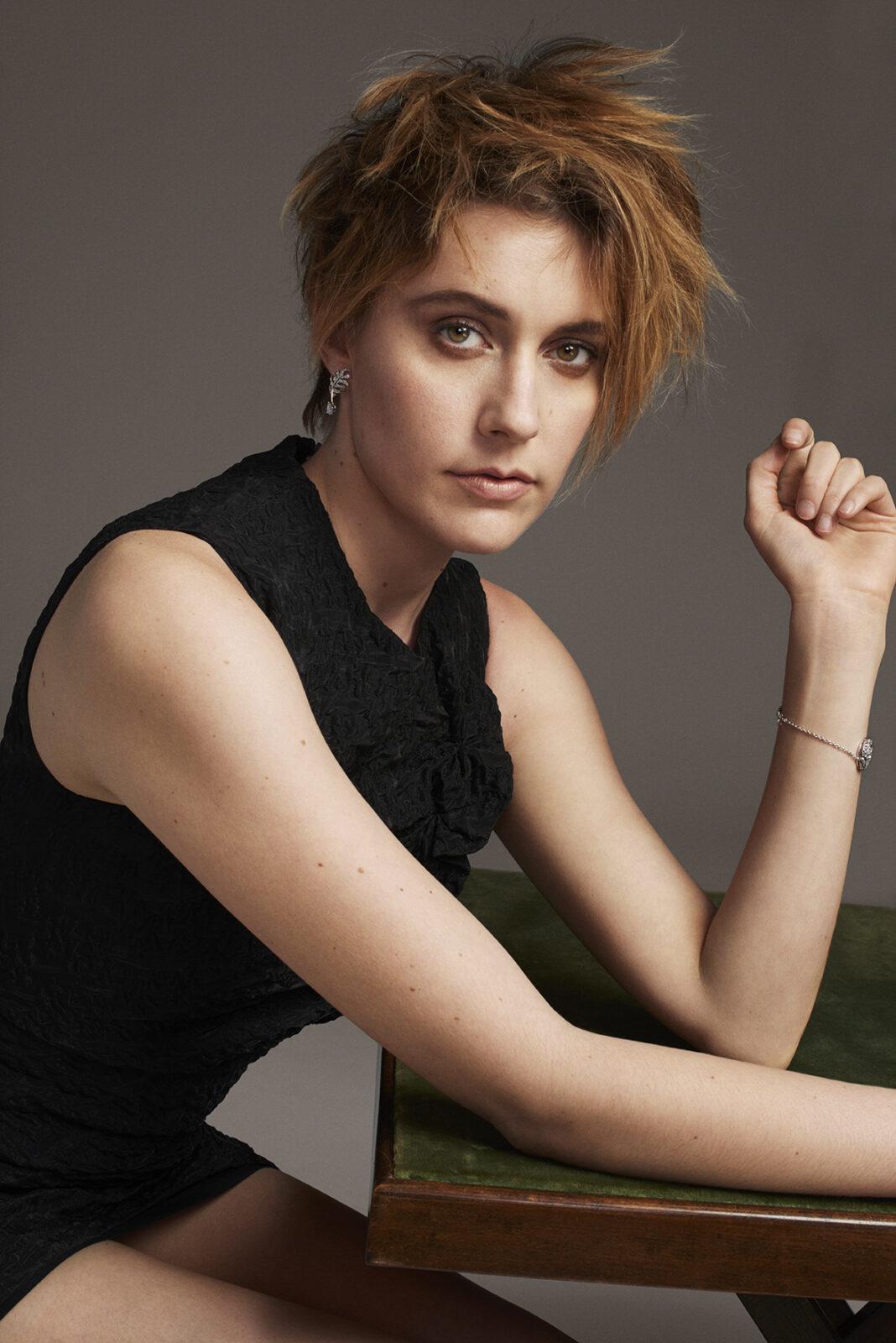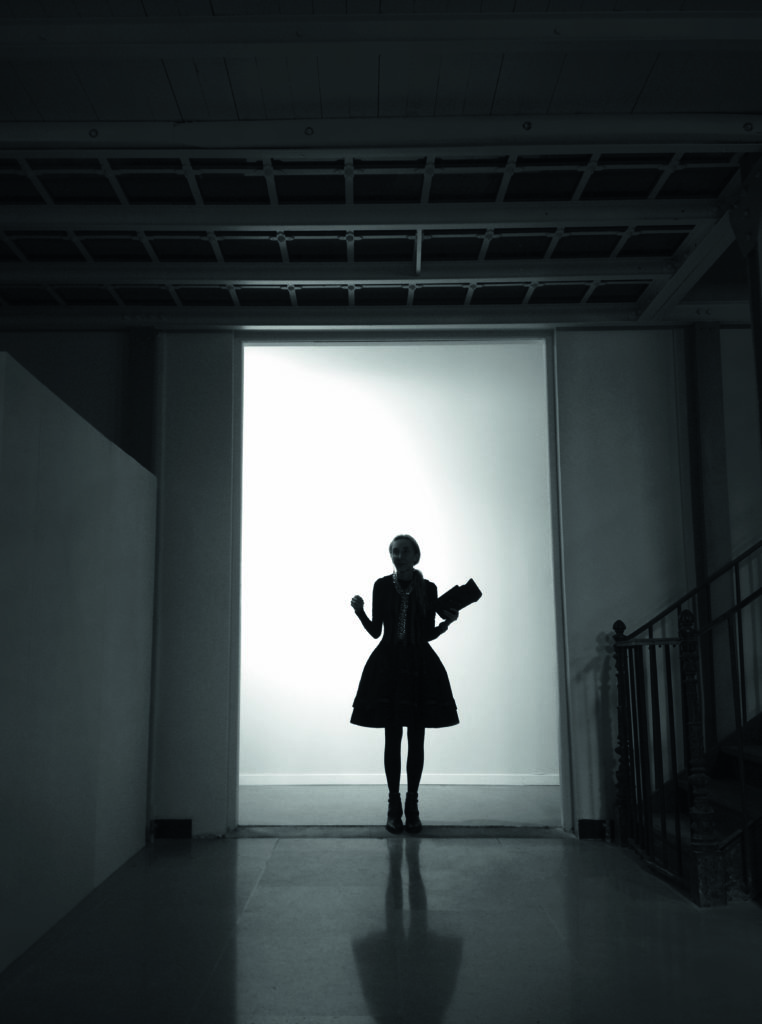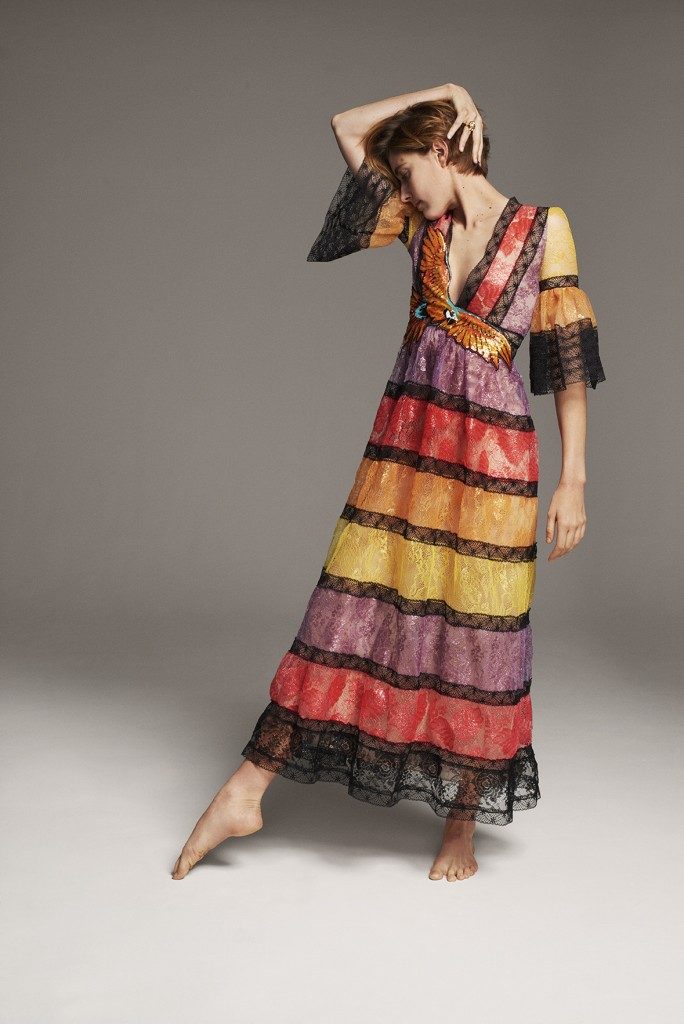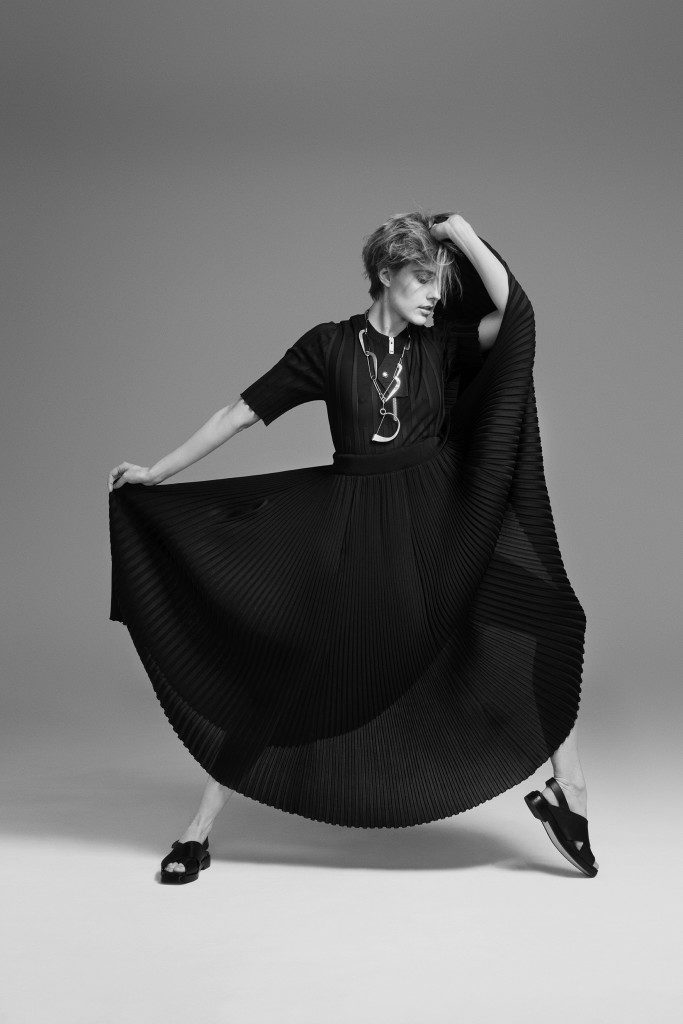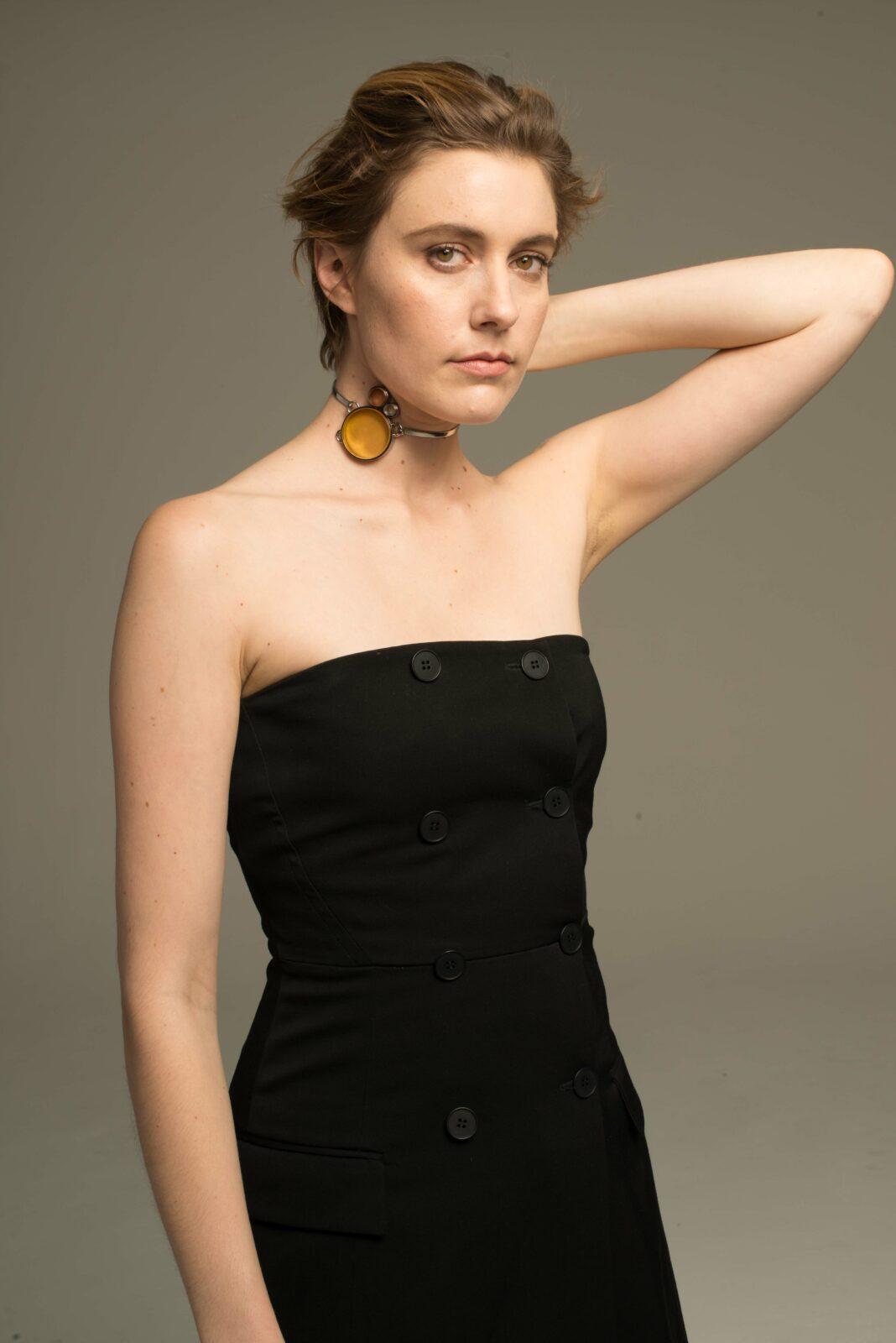
OUR INTERVIEW WITH GRETA GERWIG
By Crash redaction
Ever since first seeing “Baghead” and “Greenberg,” I was enchanted. Here was a quirky, awkward, innocent beauty, acting in real movies. It’s an almost ethereal presence Greta Gerwig has. She’s not proposing to have it all figured out, or to brag, or bask in her glory. One really gets the sense that she’s awed by life itself. There’s a refreshing, pure, old-fashioned sophistication about her that’s unique in the under-sixty set these days. Gerwig has just won two awards at the Golden Globes for Lady Bird, the coming-of-age film she has directed and wrote, one for Best Comedy Actress for Saoirse Ronan and one for Best Comedy Film. Rediscover our interview with her from our archives Crash 76.
I have so many questions. I love the fact that you’re a female in NY not falling into some kind of comedic trap in a predictable SNL way.
In the films I’ve written like “Frances Ha” and “Mistress America,” I’m interested in very age-old story structures that have to do with grace and epiphany, and those story structures are generally reserved for male characters. For me – this sounds crazy – it has to resonate with some more archetypal story, and then the specificity of it makes it sing. It’s something that emerges to me about the form of the story that feels as if it fits into something that’s bigger. In “Frances Ha,” the last place she is before the end of the movie is when she goes back to the college she went to for the summer. And it opens with her in the woods. To me, that’s connected with being cast out into the wilderness and to all the stories of when people hit their low point. I like it when you can take real things from life, and give them a kind of mythic quality.
When you used the term “low point,” people love to watch characters going through some situation that’s not perfect. I do notice that often your characters have to ruin what inspires them. What’s that all about?
I am very interested in the moments when people are still pursuing the thing they’ve actually moved past. In “Mistress,” Brooke can’t see that she’s moved past this moment, but she’s still going for it and she genuinely thinks it will provide salvation in an economic way and that she has a place in the world that makes sense. I think with Frances, she wants Sophie to live with her for the rest of her life and she wants to be a modern dancer. For both of them, they’re beating back against a current, and I find it heartbreaking and very true. In a way, in “Mistress” I feel that the epiphany happens less for Brooke and more for Lola’s character of Tracy. She wants to be a writer, but I think this is the first time she’s really hurt an adult. That’s such a vivid moment, when you’re around that age and you realize, “I can hurt people, I’m not a child any longer, my power to injure another exists, and that writing isn’t just a frivolous activity.” One of the things I love about that movie is that it’s not OK between them. She says, “I know you came to apologize,” and Lola says, “No I’m really not that sorry,” and she says, “Oh well, fuck this then…” and then they kind of move on, and it’s like nobody was forgiven, but it doesn’t matter. You don’t get absolved for your sins, but that’s OK.
I know you’re interested in playwriting. How do your stories come to you? Do they come as more archetypal storylines first?
My experience of it is that it comes in almost a collection of scenes and moments, and I’ll start building a world. I don’t know how other people do it, but I always need to generate almost too much material, and then it’s almost like a magic eye picture where you look at it, and it seems like a mess, and then all of a sudden the picture comes out at you.
Do you tape stuff to the wall or write in a notebook, or how do you siphon out the useless scenes?
I write in a notebook and also on a computer. I tend to print everything out and lay it all on the ground, at some point. Once I have enough material and pieces, and the story comes out, I start arranging and culling and putting things together. It’s a very odd process of faith. Underneath the spark of my idea, the character has a story, and that story will be made clear to me if I just follow the breadcrumbs. Your unconscious does a lot of the work for you; you leave a lot of clues for yourself about what the thing is. And then it’s almost as if you’re deciphering the clues you’ve laid for yourself.
Do you drink a lot of coffee? What do you do while you write?
I drink a tremendous amount of coffee. I drink too much coffee. I used to smoke a lot of cigarettes. I don’t any longer because I don’t want to die of lung cancer. But now, I still consume nicotine. I think I will wear a nicotine patch for the rest of my life. I didn’t wear it today, because I knew that I couldn’t wear it to a photo shoot. I watched Benedict Cumberbatch in “Sherlock,” and Sherlock in that version wears nicotine patches!
What are the seminal books or plays that you have always loved? The ones that helped you become a writer?
I’ve always been a reader, and I think that my jam was those 19th century novels. Jane Austen, the Brontë sisters, Dickens, Herman Melville, and the Russians. “Anna Karenina” was a huge one. There’s a section in the novel where he goes into the dog’s mind, it’s so perfect, and I couldn’t believe it. And then, because of theater, Shakespeare was everything. In high school, it was all Edward Albee and Tom Stoppard. Albee had a kind of rhythm that I instantly connected to. It’s just awful and funny and wicked, and similarly, Tom Stoppard was just so frothy. When I got into college, I worked at a theater company downtown – I did lights and sound at Richard Foreman’s theater, the Ontological-Hysteric Theater Company – and that group (nobody knew who I was, I was just a chubby eighteen year old who was good at lights) opened me up to different theaters downtown. And Will Eno was a big playwright for me. I was finding my people and what I was interested in, and so those were all very formative. I read Milton, and it killed me – I couldn’t believe it. The idea that even poetry is a state of sin because it’s fallen, because it’s metaphor? I felt like I had to stay inside for the weekend when I read it.
Who would you say right now are your favorite authors?
I’ve really gotten much more interested in female writers and artists, playwrights, and filmmakers. I don’t think this is unusual, but I think I had sort of unconsciously internalized a process like the way I think when someone says, “Do you want wine?” I automatically think, “They meant red wine. If they meant white wine they would have said white wine. Wine is red wine, and artists are men. If it’s a woman artist, they’ll tell you it’s a woman artist.” I haven’t even totally started dismantling it until really recently. There are the biggies of course – Austen, the Brontë Sisters, Virginia Woolf, but I really didn’t have a sense of who my women heroes were and I think now I have had the privilege to work with some of these people… The French filmmakers Claire Denis and Agnès Varda, and now Mia Hansen-Løve, she’s amazing. In poetry, Eileen Myles and Kay Ryan and for fiction Renata Adler, I felt like there was a whole world that I was stepping into. My favorite playwright right now is Annie Baker. I felt like when I saw her play for the first time in like 2007, “Circle Mirror,” I had that feeling that was “This is not the best play by a woman, this is the best play… She is the best writer. It’s not a B-side. She is better than them.” I felt this surge of pride and jealousy. I’m almost, at this point, exclusively interested in what women are doing. I feel very lucky to be in the time I’m in. Living through what’s happening. I still can’t believe how unequal it is.
What’s your opinion about men everywhere in film, on film sets, etc.?
It’s a boys’ club. Not to be too sociological, but part of it is that boys are given machines to play with. Girls are not given machines. Boys are given computers and cameras and tools, and I think there’s an immediate intimidation factor with girls with the tools. But I’ll tell you, I know a lot of male filmmakers and most of them don’t know anything about those tools, they just feel confident about it. I mean, the DP knows about lenses. But a lot of them don’t know what they’re talking about – not really. And it’s really an invisible thing.
Now that you have some say in the matter, do you put together your crews by picking really nice people, or talented people, or what?
The reason that I am attracted to both film and theater (and dance and music for that matter) is that they’re so incredibly collaborative, and that they are always made by groups. You’re never just executing something, you’re bringing your whole self to it, and I want people who bring their whole selves and feel ownership over it. I’m not crazy about the “film by” credit. I think you directed it, and you wrote it, but the film is not by you. It’s not. That’s an absurd statement to make. It’s by the people that made it. And I think what I look for is people that have a little spark of the commune in them because for me that’s what I’m drawn to.
So as a pretty blonde, you could go down that road, and I’m sure you are offered the opportunity to work with those male directors. Have you ever decided not to, or do you do it just for the experience? What are your thoughts on going down those roads, while also maintaining your identity?
When I started making my living as an actor and I was in “Greenberg,” and things started presenting themselves to me, I didn’t go in for a certain aspect of it. I stepped away. Part of me thought, “Why can’t you go for this? What’s wrong with you? Are you self-sabotaging?” I gained a solid twenty pounds. Because there was something in me that felt very much like, if I somehow tried to be identified with my looks and my youth, what the fuck are my forties going to be like? And I think for me, it was a false binary, and it is a false binary. At that moment when I was twenty-six through twenty-seven, I just couldn’t do that. And I think that it felt very lonely and strange. To be honest, you can do all of it. You don’t have to make that choice. But for me, it was something I just couldn’t totally do.
I know that so many people fell in love with you in “Greenberg.” What breakthrough qualities do you think your character had in that movie? Nobody really saw that before.
I knew who Florence was, and I was so sure that I was the only person who could do her justice in the way that I felt her. It’s one of those things, I just felt like I owned it very quickly. When I read it, it was a feeling of, “I didn’t write this but I’m so angry that I didn’t write this because I couldn’t write this,” and that’s a good feeling to get. I just had an instant ownership of it. I don’t know exactly what it was, but I’m very glad that it was true.
Do you do yoga, or anything spiritual like that?
Oh, yeah. I’m a “theist.” I get uncomfortable around “Jesus Christ is my Lord and Savior stuff,” I find that creepy, but I go to church every Sunday. I had a weird method for a while where I was going to the Quaker meeting at 9 AM and sitting silently for an hour, and then going to a Protestant church where I liked the choir, and then at noon there was a Jesuit service I liked, and then I was like “You’re going to church for five hours on Sunday. This is weird.” But I went to a Catholic high school, though I wasn’t raised Catholic. My main attraction to Catholicism is I love the Jesuits: I love the rigor, the mystery, and the ceremony. I love that as a religion and as a sect of Christianity they place emphasis on worshipping the Virgin Mary. It’s a woman and I know it’s complicated, because I don’t like the position of women in the Catholic Church, but also, they pray to the Virgin Mary. That’s not something Protestants do, and it feels like this “God the Father” thing is a bit alienating for me But to engage with the idea of a woman as the mother, it seems like it’s connected to a more pagan type of religion. And also the multiplicity of saints in Catholicism feels very old to me.
What kind of dance do you do?
I take a lot of hip hop, Jamaican dance hall, and house dance, and it’s really hard and I’m not good at it. I’m just the awkward tall blonde girl standing in the back, but it’s good for the soul.
What do you see for yourself in your future?
I think in the short term. I’m directing a movie I’ve written this summer. It’s sort of a mother-daughter movie. It’s about an eighteen year-old and her last year living at home before she goes to college, and her mother and their family and their town. It’s starring Saoirse Ronan and she’s great, and she’ll be great. I’m directing that in August and September. I want to continue to write and direct films about women. I’d like to make a bunch of them. I really think that over the last ten years, from about 2006 around when I graduated from college until now, I apprenticed in film and now I feel like it’s time. I’m ready.
***
PHOTOGRAPHER Blossom Berkofsky
FASHION Heidi Bivens
TALENT Greta Gerwig
LOCATION Fast Ashleys Studios, Brooklyn, New York
HAIR Frankie Foye
MAKE UP Quinn Murphy
DIGITAL TECH Sean Greene
PRODUCTION A+ Productions
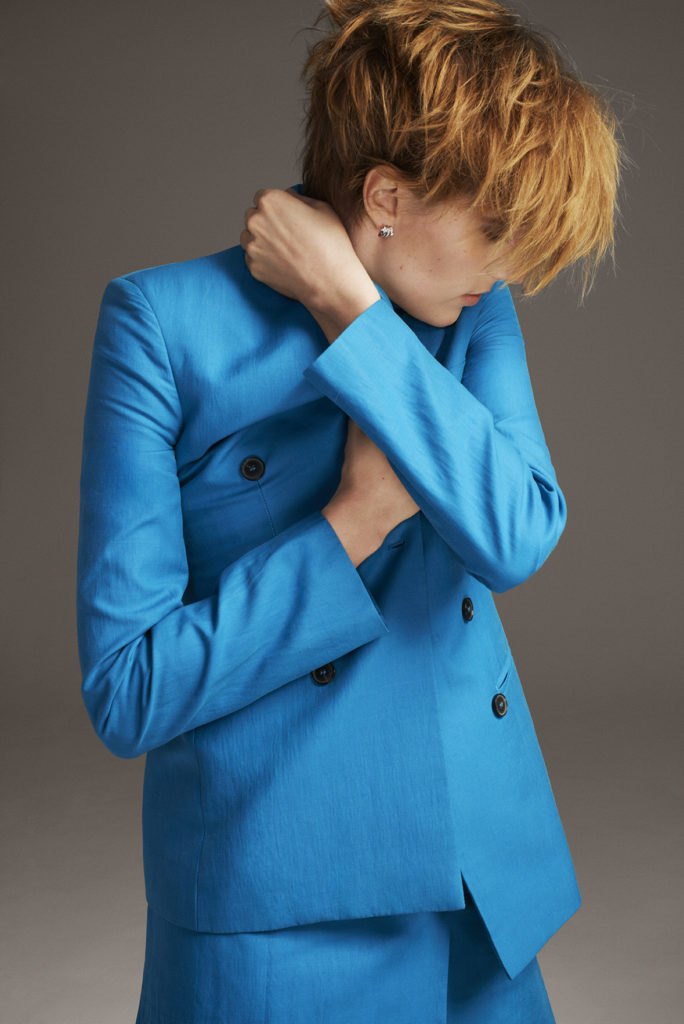
PAUL SMITH Jacket, skirt
CHANEL FINE JEWELRY « Comète Spirale » earring in 18k white gold and diamonds
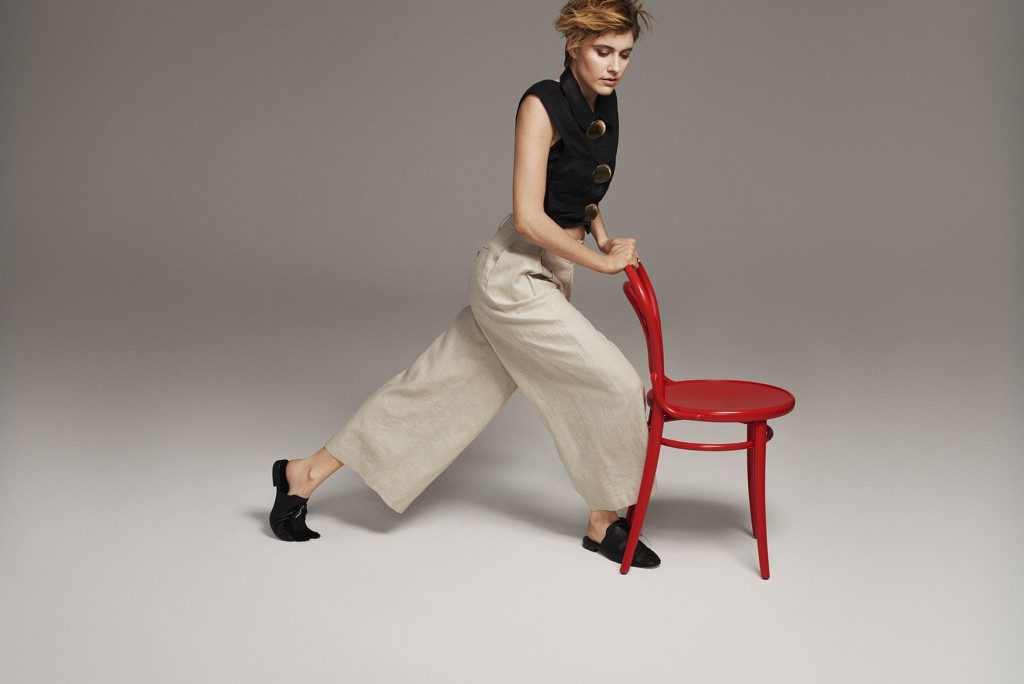
OPENING CEREMONY Black linen top, linen pants
EDEN Black slip on shoes
CHANEL FINE JEWELRY “Lion Pépite” ring in 18k yellow gold
Interview by Rebecca Conroy.







